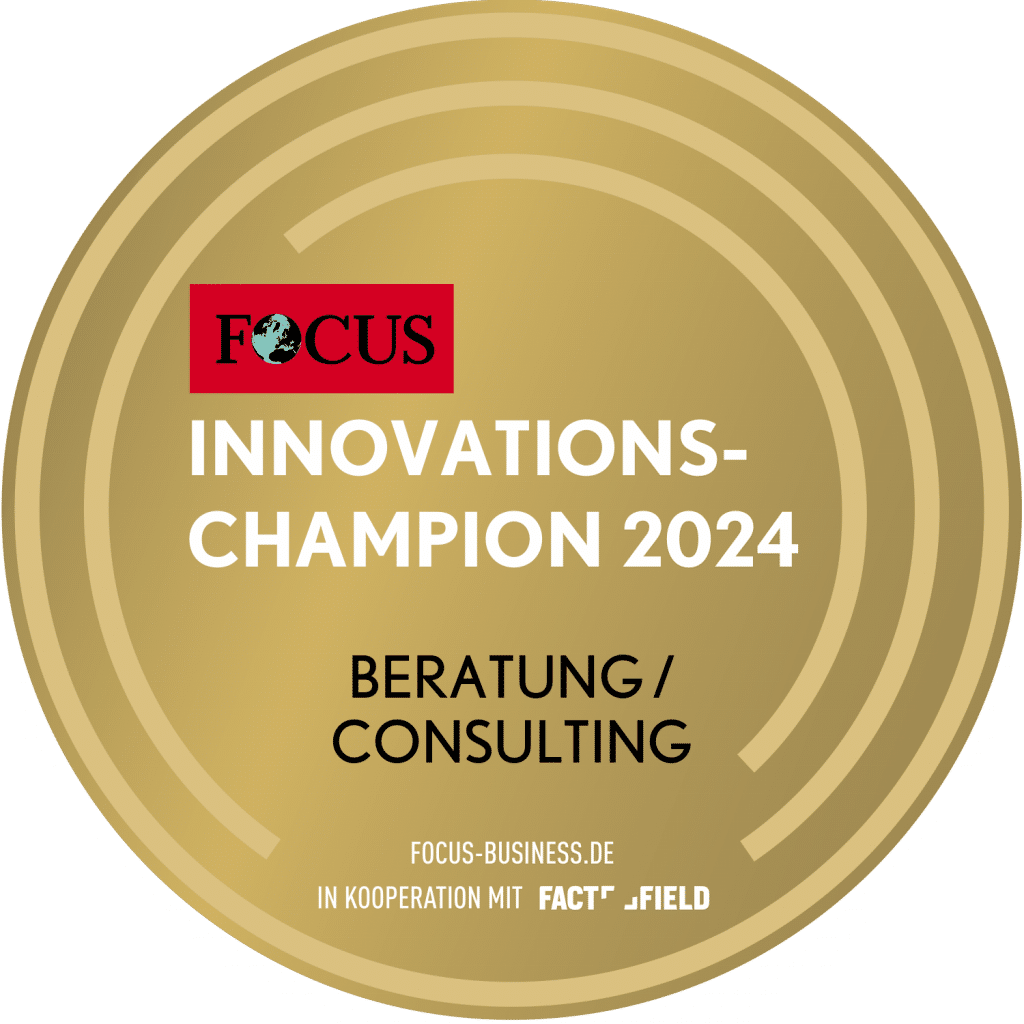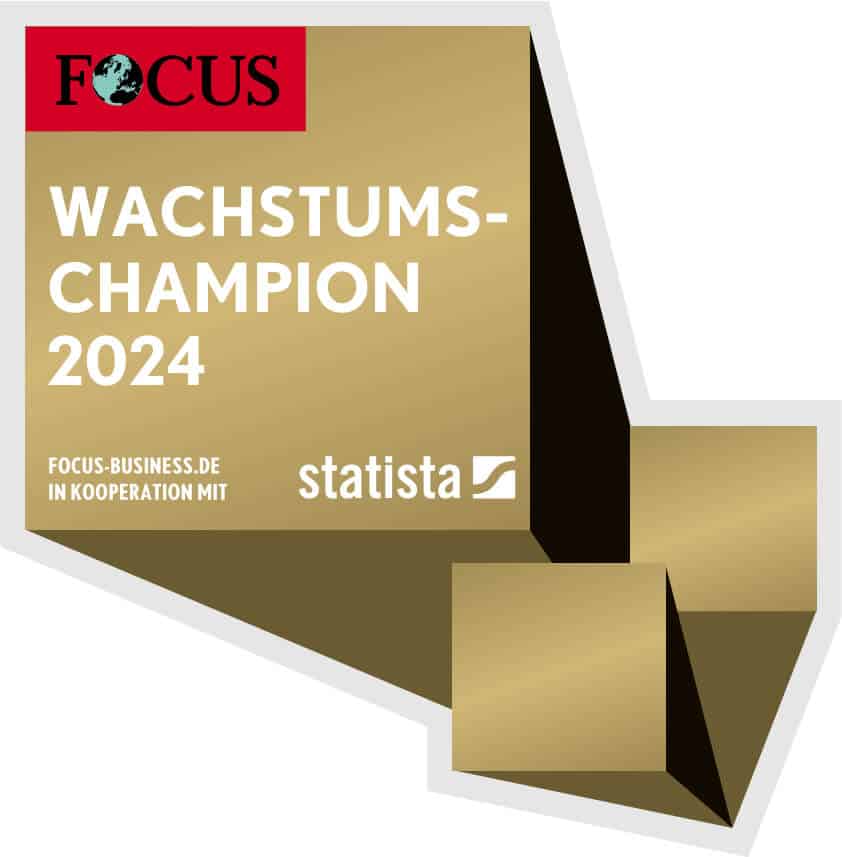The introduction of an ERP system, whether SAP, Infor M3 or Infor LN, requires and causes changes that often have a profound impact on daily work processes. The need for information is correspondingly high. If the project management meets this demand to an appropriate extent, this makes a decisive contribution to the success of the project. After Part One and provided guidance on budgets and other tips for successful project marketing, the second part of the blog post will now focus on the right content.
Information for a successful start to project marketing
Good change communication starts with the why and wherefore. After all, anyone who understands and accepts the objective will be much more open to the new approach than someone who considers it superfluous. It is even better if the stakeholders discover a benefit for themselves in the project and therefore also become interested in the new system world. ERP solutions have a lot to offer in this respect, for example:
- Better IT support for processes for many roles
- Easier compliance with legal requirements (Compliance, Traceability)
- Elimination of unsightly system interfaces
- Replacement of old IT systems with high support costs
- Strengthening the market position through future-proof, scalable and efficient IT.
Why of all things ...?
Let the future users understand the decision for the specific system, i.e. why your company has chosen this particular system. SAP, Infor M3, Infor LN or has chosen a different solution.
- Does this system cover the company processes or company-specific requirements particularly well?
- Does it score with industry experience?
- Does it offer a modular structure that is well suited for the introduction, integration and further development of new functionality?
- Does it support international business development better than others?
- Was his support model convincing?
What does the new ERP solution mean for the individual?
The advantages of ERP solutions not only help to secure the future of the company as a whole and therefore also jobs. Right from the start, you can at least hint that the new system environment will also bring clear improvements for employees, such as significantly simpler searches for queries from internal controllers or external partners. The new end-to-end IT support for processes will lead to a much better understanding of the overall system, which is generally perceived as interesting and helpful. The qualification for a modern ERP world means a valuable qualification on the job market and even the project itself offers interesting opportunities for IT-savvy employees.
In addition to such positive aspects of ERP implementation, also mention the price that has to be paid first. As a rule, most people already know that an ERP project entails a huge workload and it makes no sense to minimize this.
Two other important messages should come from the very top and as project manager you would do well to insist that this information also initiates the project communication:
- ERP implementation is not a downsizing project!
- We take everyone with us into the new world, no one is left behind!
Point out now that there will be a comprehensive training program and create confidence that colleagues with little IT experience in particular will be well trained.
Sticking with it after the start: project marketing needs perseverance
You probably know the saying: jumped as a tiger, landed as a bedside rug. Unfortunately, it sometimes applies to communication in change situations: After an impressively powerful and visionary start, there is nothing for a long time. Some stakeholders conclude that the whole thing is not that important after all, or that something went wrong right from the start is. Others may suspect that nasty things are being cooked up in the project that they don't want to talk about. To prevent this, continuity is essential. Decide at the beginning how often you want to communicate - a good frequency is every six to eight weeks - make this known and stick to it. The amount and length of information can fluctuate.
The right information - right from the start
There is enough interesting technical information in the ERP project, at least some of which is already available in the initial phase, for example:
- What is SAP / Infor M3 / Infor LN? Company, Facts and Figures, Software, Reference customers
- What are modules? Which ones are introduced? What can they do?
- Which special industry functionality is implemented?
- What is master data, concept and meaning? What are the advantages of consolidation? How is the topic integrated into the project?
Lesson learned: Combining factual information with benefits for the user
Technical information can be a rather dry affair, but if users see a connection to their own job, this quickly changes. You increase interest and acceptance if you combine information about the project, system and facts & figures in general with concrete benefits and point this out in the text, headings and subheadings. Examples:
- Master data consolidation ⇒ prevents unproductive duplication of work ⇒ more time for other things
- Modular structure ⇒ greater transparency, better and always up-to-date data
- High IT penetration of processes ⇒ Protection against errors
Questions for the HR department
The changes brought about by the ERP implementation and the project itself lead to a long list of questions that are highly relevant to employees and can only be answered by the HR department. Consider the following topics, for example:
Working hours
- Will there be overtime and Saturday work?
- What happens to my overtime?
- Can I take vacation during the training period?
Remuneration
- Can my classification change as a result of the new solution?
- Will anything change on my payslip?
- Can there be delays at the beginning?
Training courses
- Who trains us and with what materials?
- Where and when do the training courses take place?
- What happens if I can't be there?
Collect such questions and ask the HR department to answer them as soon as possible!
The human factor in the project life cycle
People give a project character and are decisive for sympathy and trust. ERP implementations offer more opportunities than almost any other project to use this continuously throughout the entire project. Because on the one hand many people, not only from IT, are involved in shaping the companyOn the other hand, many, sometimes almost all, colleagues are called upon to implement the changes in their day-to-day work.
The contributors - people and roles
It is therefore a good idea to introduce the people involved in the project right at the beginning, for example Project managementsub-project teams, the IT experts, etc. It is important here that you not only make the people known, but also their role. The specialist department should know that their representatives are seen as emissaries who repeatedly bring information to the specialist department, obtain feedback and are generally approachable for project topics.
At the latest when there are points of contact between consultants and internal staff, it is a matter of courtesy to also introduce them in the project communication and make their function clear. After all, not everyone knows what an implementation consultant or an ERP customizer is.
Colleagues as credible ambassadors
The later the project arrives in the lifecycle, the more exciting the human factor in communication becomes. This is because there are now more and more people from the specialist departments who are gaining their first experience with the new IT. Project marketing can now benefit enormously from the credibility of the key users and is well advised to select and support them carefully.* Photos and statements from training participants, testers, additional multipliers, department heads ... Interest in project communication often reaches its peak now, because just like in the local press, nothing is as exciting as discovering photos or statements from your own environment. Moreover, only later on in the project does everyone really understand how much the topic affects them personally.
Important: Consider critical questions and skeptical comments as your allies. They are a good opportunity for communication and increase the credibility of your information.
Technical content in the course of the project
Don't you run out of material in the middle of the project at some point? When everything has been presented, but nothing is really there yet? Don't worry, ERP remains exciting and there are always interesting things to report on a technical level, for example about the
- Design of the new IT and processes in the various areas such as purchasing, logistics, warehouse management, production, sales, finance, human resources ...
- Interface topics such as master data maintenance, quality management, specification, new terms, tests ...
- Implementation strategy: big bang or step-by-step plan, commissioning concept, legacy data transfer ...
Active communication during crises
What ERP project runs without setbacks and crises? Probably none. Tests go wrong, the commissioning deadline is missed... These are situations in which you would perhaps prefer to put the issue of communication to one side for the time being. But that would be a bad decision, because communication is not an additional burden in such situations, but part of the solution. The three key points for Crisis communication in the project also apply here:
- Deal with the issue before the grapevine, i.e. provide information first if possible and take the opportunity to classify the problem objectively and avoid undue excitement and speculation.
- Point out possible solutions, and if this is not yet possible, outline the procedure for finding a solution.
- Once the problem has been solved, you can present the resolved crisis as a success story. Show how the team and project management as a method contributed to finding a solution. There can be exciting stories here, because good project management is not (only) manifested in working through a plan, but also in particularly tricky situations.
ERP implementation - an exciting topic
In terms of communication, the ERP implementation is an exciting adventure that the company rarely experiences. The story of a community on an often arduous path to a challenging goal, which finally experiences a breakthrough after stage victories and setbacks. Tell it and you will significantly increase interest, acceptance and support with a very good cost-benefit ratio.
Further information on ERP projects with Infor and SAP
The expertise with which TCI supports customers with Infor systems is described in a recently published Blog post. SAP itself is advised by TCI on several topics, and in 2017 TCI also organized a successful event for SAP customers on the Variant management and 2018 especially to S/4HANA.
—
*You can find out more about key users and their importance for your project marketing in my two-part article on this in the project magazine.
(Cover image: © Jacob Lund | fotolia.com)


